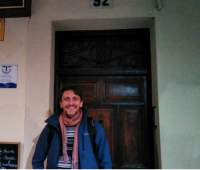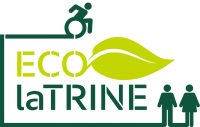- Forum
- categories
- Resource recovery
- Production of insect biomass from excreta or organic waste
- SuSanA Webinar: The use of Black Soldier Fly Larva for Faecal Sludge treatment, 30th January 2018
SuSanA Webinar: The use of Black Soldier Fly Larva for Faecal Sludge treatment, 30th January 2018
13.8k views
- stevensugden
-
 Less
Less- Posts: 32
- Karma: 8
- Likes received: 28
Re: SuSanA Webinar: The use of Black Soldier Fly Larva for Faecal Sludge treatment, 14:00 (Stockholm time), 30th January 2018
Please Log in to join the conversation.
You need to login to reply- eshaylor
-
 Topic Author
Topic Author- I am a WASH engineer who loves nothing more than talking Sh*t. I am currently working for UNICEF on innovation products in the WASH sector that can support the impact of programmes with a focus on children and women.
Less- Posts: 102
- Karma: 10
- Likes received: 61
Re: SuSanA Webinar: The use of Black Soldier Fly Larva for Faecal Sludge treatment, 14:00 (Stockholm time), 30th January 2018
In response to Chelsea's question:
Im wondering about the qualities of the fertilizer: Why would buyers find it desirable? In what contexts (soils, crops, etc.) would it be most useful and effective? Would it have a particularly high value relative to other fertilizer sources? Have any other BSF projects tried to make fertilizer from the larvae themselves, and what was your experience with it?
The response from the operator of the plant is:
We are not aware of anyone who has attempted such a strategy. The thinking behind this is as follows: while we work on developing our product portfolio from toilet resource fed larval biomass, we will produce a standardised and safe soil product. The nature of this product is still to be determined. Some plant machinery needs to be fixed and upgraded. Thereafter we will be able to validate the end product.
In parallel, we will be working at developing some specific products that are currently cannot be disclosed
Hope that helps in some way!
Innovation specialist - WASH and Education
UNICEF Supply Division
Please Log in to join the conversation.
You need to login to reply- paiiina
-
 Less
Less- Posts: 1
- Likes received: 0
Re: SuSanA Webinar: The use of Black Soldier Fly Larva for Faecal Sludge treatment, 14:00 (Stockholm time), 30th January 2018
I was interested in knowing if there are experiences of latrine design which uses BSFL as a excrete management. There are prototypes being tested using Tiger Worms in EcoSan (water.oxfam.org.uk/blog-en/tigers-in-the-toilet/), but found no information related to this issue using Hermetia Illucens.
The webinar was great, and I'm looking forward to learn more from your experiences.
Thank you.
Best regards.
Please Log in to join the conversation.
You need to login to reply- rsilveti
-
 Less
Less- Posts: 18
- Karma: 1
- Likes received: 8
Re: RE: [WG4] SuSanA Webinar: The use of Black Solider Fly Larvae for Faecal Sludge treatment, 14:00 (Stockholm time), 30th January 2018
regards
Raul Silveti
Please Log in to join the conversation.
You need to login to reply- cwald
-
Less
- Posts: 1
- Likes received: 0
Re: SuSanA Webinar: The use of Black Soldier Fly Larva for Faecal Sludge treatment, 14:00 (Stockholm time), 30th January 2018
Thanks.
Chelsea Wald
science writer
Please Log in to join the conversation.
You need to login to replyRe: RE: [WG4] SuSanA Webinar: The use of Black Solider Fly Larvae for Faecal Sludge treatment, 14:00 (Stockholm time), 30th January 2018
Stockholm Environment Institute
This email address is being protected from spambots. You need JavaScript enabled to view it.
www.sei.org
www.ecosanres.org
Please Log in to join the conversation.
You need to login to reply- eshaylor
-
 Topic Author
Topic Author- I am a WASH engineer who loves nothing more than talking Sh*t. I am currently working for UNICEF on innovation products in the WASH sector that can support the impact of programmes with a focus on children and women.
Less- Posts: 102
- Karma: 10
- Likes received: 61
Re: RE: [WG4] SuSanA Webinar: The use of Black Solider Fly Larva for Faecal Sludge treatment, 14:00 (Stockholm time), 30th January 2018
Today proved to be a really interesting webinar with lots of discussion and really insightful presentations which are attached. The three presenters have approached the use of BSF in different ways and at different levels of scale. We will be sharing the recording of the webinar soon, but please feel free to continue the discussion or ask further questions here.
Regards
Esther
Innovation specialist - WASH and Education
UNICEF Supply Division
This message has attachments files.
Please log in or register to see it.
Please Log in to join the conversation.
You need to login to replyRe: RE: [WG4] SuSanA Webinar: The use of Black Solider Fly Larva for Faecal Sludge treatment, 14:00 (Stockholm time), 30th January 2018
I am quoting this sentence from your post:
.The disappointing results of 80 000 UDDT in eThekwini makes me think that the waste management was “an afterthought” – and not a priority for those who sold or bought the units.
It caught my attention and I was wondering where to find more information on the development of this program.
I found this thread on the forum but it dates back from 2013): forum.susana.org/34-urine-diversion-syst...here-in-south-africa which also leads to a 2011 case study and other presentations (2008).
So my question is where can we get updated information on this project?
Thanks
MAKATI Environnement
Please Log in to join the conversation.
You need to login to reply- neilmacleod
-

- Consultant in water and sanitation, Honorary Research Fellow at UKZN
Less- Posts: 8
- Karma: 5
- Likes received: 9
Re: RE: [WG4] SuSanA Webinar: The use of Black Solider Fly Larva for Faecal Sludge treatment, 14:00 (Stockholm time), 30th January 2018
All the customer surveys that I have seen show the flush toilet to still be the preferred option, but UDDT's are seen as far better than VIP type toilets by those who have them. The last survey done before the UDDT emptying service was introduced showed a usage rate above 80% but only a 35% preference for that option compared to the flushing toilet.
There was an inconsistency in the policies of EWS that became apparent during focus group meetings with customers. Water borne sewerage is carried off-site in piped sewers, VIP latrines are emptied by EWS once in 5 years at no cost to customers (as part of the free basic service policy), but until 2013 households with UDDT's were expected to empty their own pits every two years. The policy was changed and a decision taken to collect the sludge and process it for reuse - now using the black soldier fly plant as dry faecal matter cannot be processed through the Ladepa plants operated by EWS.
That to me is just a customer centred evolution of policy and a demonstration of the 'learning by doing' approach that has been a core feature of EWS for more than 20 years.
Consultant and Honorary Research Fellow
Durban
South Africa
This email address is being protected from spambots. You need JavaScript enabled to view it.
Please Log in to join the conversation.
You need to login to reply- ECOlaTRINE
-

- By addressing water challenges - sanitation should be the first step.
Less- Posts: 22
- Karma: 1
- Likes received: 5
Re: RE: [WG4] SuSanA Webinar: The use of Black Solider Fly Larva for Faecal Sludge treatment, 14:00 (Stockholm time), 30th January 2018
AgriProtein already established large scale farms in Cape Town, Stellenbosch, Johannesburg etc. in South Africa. They have the licences and received $117 000 000 to expand into other countries.
The disappointing results of 80 000 UDDT in eThekwini makes me think that the waste management was “an afterthought” – and not a priority for those who sold or bought the units.
Countries spend millions on sludge research – when we need to minimise the strain on sewage systems.
It may be beneficial to the discussion to get in touch with Jason Drew from AgriProtein – for input.
Kindest regards.
Ms Henriëtte Vermaak
ECOlaTRINE (Pty) Ltd
Mobile +27 82 807 8033
This email address is being protected from spambots. You need JavaScript enabled to view it.
www.ecolatrine.co.za
Please Log in to join the conversation.
You need to login to reply- eshaylor
-
 Topic Author
Topic Author- I am a WASH engineer who loves nothing more than talking Sh*t. I am currently working for UNICEF on innovation products in the WASH sector that can support the impact of programmes with a focus on children and women.
Less- Posts: 102
- Karma: 10
- Likes received: 61
SuSanA Webinar: The use of Black Soldier Fly Larva for Faecal Sludge treatment, 14:00 (Stockholm time), 30th January 2018
Please join us for the next SuSanA webinar to take place 30th January 2018 at 1400 Stockholm Time
Within the sector, we are well aware of the need to find viable systems for treating Faecal Sludge that are affordable and sustainable. An ideal solution allows us to reuse faecal sludge as a resource as it has a high organic component that has the potential to be utilised in other ways. This webinar looks at three projects that are working to harvest Black Solider Fly (BSF) larva to process faecal sludge. Each project has a different approach and scale but all have valuable lessons to share.
You can register for the webinar here - www.susana.org/en/bsfwebinar
A Black Soldier Fly Larvae Pilot in eThekwini, South Africa - Nick Alcock
The project involves the implementation of a Service Level Agreement (SLA) with a private operator to manage a Black Soldier Fly (BSF) faecal waste processing plant that produces beneficial products that ultimately reduce municipal running costs.
Since 2002 eThekwini Municipality (South Africa) has installed over 80 000 Urine Diversion Toilets (UDs) at the household level in rural areas. Due to health risks to householders, the Municipality decided to provide a waste removal service. The default option for disposal of the faecal waste was burial on site with tree planting. However, there were concerns with environmental acceptability of burial onsite and space constraints in the long term. This led to the identification of Black Soldier Fly Larvae (BSFL) as a technology that could convert faecal waste to valuable end products through a business partnership with a private operator.
The key process steps included:
- Assessment of institutional framework and policies of Municipality
- Financial modelling of the planned approach
- Development and signing of the SLA
- Construction of the plant
- Testing of the plant and modifications
- Partial implementation and ongoing testing
The presentation will detail the implementation steps taken, the plant process flowchart, assessment of the achievements, challenges and lessons learned to date as well as the viability of the business model at this stage of the roll out.
Commercial Production of Insect Based Feed in Uganda - Osbert Atwijukye
In 2014, Water for People began experimenting with breeding Black Soldier Flies (BSF) in Kampala. The aim was to find a place for BSF in the sanitation value chain, preferably by converting pit latrine sludge into valuable poultry or fish feed. The work, after a few false starts and a great deal of patience, lead to the capacity to manage the breeding and growing process, but struggled to find a place for it within sludge disposal. Sludge is not their preferred food and fuel briquettes are easier to make and carry less negative consumer reactions. Would you eat a chicken fed on shit?
However, the potential of BSF as poultry food was clear and a spin off company called ‘Nature’s Answer’ was created. Kampala has no shortage of market waste on which to grow the larva and the poultry industry is large. The decision was informed by a survey where over 80% of farmers reported a willingness to use larva based food and who were suffering from the ever-increasing costs and scarcity of existing silver fish protein supplement sources. Farmers also expressed concerns over the deteriorating quality of existing feeds and were encouraged by the Uganda National Bureau of Standards approval of the insect based feeds (INSFEED 2017). Pilot studies elsewhere have shown an increase in egg production and improved yoke quality when using BSF protein based foods. My presentation will focus on the current progress towards commercialising the product, opportunities and challenges.
The Development of a Modular Processing unit in Sweden - Bjorn Vinneras/Cecilia Lalander
The Environmental Engineering group at The Swedish University of Agricultural Sciences have since 2011 been working and developing a fly larvae treatment unit for processing source separated food waste. The aim is to develop a modular treatment unit for treatment of food waste. The concept with using modular treatment is that it enable the treatment to be closer to the generation of the waste and thereby will all transport be of concentrated products only. Additionally the modular system enables treatment of peak flows of food waste, e.g. products from feed industry with high season differences, e.g. juice production. The module developed is for treatment of approximately one ton (wet weight) food waste per day to be treated in a 40’’ shipping container. The first module is under implementation for treatment of household food waste in collaboration with the waste company Eskilstuna Energi & Miljö. The module is to treat one ton food waste per day (5 days per week) in a 40 foot shipping container module, producing 200kg larvae and 200kg compost per day.
In addition to the development of the treatment unit we have as a research group focused on the management of pollutants such as pathogenic bacteria and organic pollutants such as pharmaceutical residues and pesticides. The findings is that fly larvae composting of food waste and manure, including human manure, is a good method for managing non-metallic pollutants. Pharmaceuticals are degraded very fast in the treatment and pathogenic bacteria and viruses are degraded fast during the treatment.
The presentation will focus on the modular treatment concept and the up-scaling and the process benefits from the treatment system, as well as the legislative challenges in Europe with implementation of fly larvae composting systems.
Please register for the webinar here - www.susana.org/en/bsfwebinar
I look forward to seeing you there
Esther
Innovation specialist - WASH and Education
UNICEF Supply Division
Please Log in to join the conversation.
You need to login to reply- Forum
- categories
- Resource recovery
- Production of insect biomass from excreta or organic waste
- SuSanA Webinar: The use of Black Soldier Fly Larva for Faecal Sludge treatment, 30th January 2018








